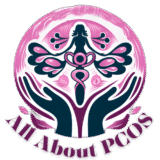Polycystic Ovary Syndrome (PCOS) is a multifaceted condition that doesn’t discriminate by age, affecting even adolescents in their formative years. This article aims to shed light on this lesser-discussed aspect of PCOS, focusing on how it uniquely impacts adolescents. The onset of adolescence marks a significant period of physical and emotional development, which can be profoundly influenced by the presence of PCOS. It’s not just a condition affecting reproductive health but intertwines with various aspects of an adolescent’s life, from physical changes to emotional well-being.
The challenge with PCOS in adolescents lies in its deceptive subtlety and overlap with typical teenage experiences. Symptoms like irregular periods or acne, often dismissed as normal teenage issues, can mask underlying PCOS, leading to delayed diagnosis and management. This delay can exacerbate feelings of confusion and isolation among young women, who are already navigating the complexities of adolescence. The aim is not to induce unwarranted alarm but to foster an environment where adolescents and their guardians are better informed and more vigilant.
Understanding PCOS in this demographic is crucial because it sets the foundation for long-term health and well-being. Early identification and management can significantly mitigate risks associated with PCOS, such as insulin resistance, type 2 diabetes, and mental health issues. It’s about empowering young women with the knowledge and tools to take control of their health at an early stage.
This article, therefore, serves as a guide and a companion for adolescents grappling with PCOS. It’s crafted to challenge conventional thinking, encouraging a new perspective on adolescent health and PCOS. By the end of this read, adolescents and their caregivers will be equipped with a deeper understanding of PCOS and its implications during these crucial years, paving the way for a healthier, more informed future.

Understanding PCOS in Adolescents
Polycystic Ovary Syndrome (PCOS) in adolescents is a complex condition, often cloaked in the ambiguity of teenage development. Understanding this condition is pivotal for early intervention and effective management, especially in a demographic that is already facing the challenges of adolescence.
A. Defining PCOS
PCOS in adolescents is more than just an adult condition scaled down to a younger age group. It’s a hormonal disorder characterized by an imbalance of reproductive hormones. This imbalance leads to a variety of symptoms that can significantly affect an adolescent’s physical and emotional health. Unlike in adults, PCOS in adolescents can be trickier to diagnose due to the natural hormonal changes occurring during these years. It is essential to differentiate between normal developmental changes and signs of PCOS.
B. Symptoms and Diagnosis in Adolescents
Recognizing the symptoms of PCOS in adolescents requires a keen eye, as many of these signs overlap with typical teenage developments. Key symptoms include:
- Irregular Menstrual Cycles: While irregular periods are common in the first few years after menstruation begins, persistent irregularity could indicate PCOS.
- Excessive Hair Growth: Known as hirsutism, this symptom involves hair growth in areas where men typically grow hair, such as the face and back.
- Acne and Oily Skin: While acne is a common teenage problem, persistent and severe acne may be a sign of PCOS.
- Weight Gain and Difficulty Losing Weight: PCOS can make it difficult to maintain a healthy weight, leading to challenges that go beyond typical teenage weight fluctuations.
- Thinning Hair on the Scalp: Similar to male pattern baldness, this can be particularly distressing for adolescents.
The diagnosis of PCOS in adolescents is not straightforward. It typically involves a combination of clinical evaluation, including a detailed medical history, physical examination, and possibly blood tests to assess hormone levels. In some cases, an ultrasound may be conducted to examine the ovaries. However, the presence of cysts alone is not definitive for PCOS, especially in adolescents, as cysts can be a normal part of ovary development.
It’s important to note that not all adolescents with PCOS will experience all these symptoms. The condition manifests differently in each individual, making personalized assessment and management crucial. Additionally, the emotional toll of dealing with these symptoms during adolescence, a time already rife with self-consciousness and social pressures, cannot be overstated. This underscores the need for sensitive and comprehensive care when addressing PCOS in this age group.
Understanding PCOS in adolescents is a nuanced process. It requires distinguishing between typical adolescent development and the more concerning signs of PCOS. Early recognition and intervention are key to managing the condition and minimizing its long-term impacts. By equipping ourselves with this knowledge, we can ensure that young women receive the support and care they need during these formative years.
The Physical Impact of PCOS on Adolescents
The physical manifestations of Polycystic Ovary Syndrome (PCOS) in adolescents are not just limited to reproductive health issues. This hormonal disorder exerts a broad range of effects that can significantly influence an adolescent’s physical development and overall health. Understanding these impacts is crucial for young women and their caregivers to manage the condition and mitigate potential long-term complications effectively.
A. Hormonal Imbalances and Physical Changes
The hormonal imbalances characteristic of PCOS play a central role in the physical changes observed in affected adolescents. These imbalances, particularly the excess of androgens (male hormones), can lead to a variety of symptoms, including:
- Irregular Menstrual Cycles: The hallmark symptom of PCOS, caused by hormonal imbalances disrupting ovulation.
- Excessive Hair Growth and Acne: Due to elevated androgen levels, adolescents may experience hirsutism and severe acne, which can be distressing and impact self-esteem.
- Weight Challenges: Many adolescents with PCOS struggle with weight gain and obesity, exacerbating the condition’s symptoms and health risks.
- Insulin Resistance: A prevalent concern in PCOS, insulin resistance can lead to weight gain and increase the risk of developing type 2 diabetes.
These physical changes are not just cosmetic or superficial concerns; they have profound implications for an adolescent’s health and well-being. The weight issues associated with PCOS, for example, are not merely a matter of body image. They can lead to a cascade of health problems, including metabolic syndrome, a cluster of conditions increasing the risk of heart disease, stroke, and type 2 diabetes.
B. Long-term Health Risks
Adolescents with PCOS are at a heightened risk for several long-term health issues, making early intervention crucial. Some of these risks include:
- Type 2 Diabetes: Insulin resistance, a common feature of PCOS, significantly increases the risk of developing type 2 diabetes.
- Cardiovascular Disease: The combination of insulin resistance, obesity, and hormonal imbalances elevates the risk of cardiovascular diseases.
- Metabolic Syndrome: This cluster of conditions includes high blood pressure, high blood sugar, excess body fat around the waist, and abnormal cholesterol or triglyceride levels.
- Mental Health Issues: The physical changes and hormonal imbalances in PCOS can also impact mental health, leading to increased rates of depression and anxiety.
It’s essential to recognize that these risks are not inevitable. With proper management, including lifestyle changes and medical interventions, many of the physical impacts of PCOS can be mitigated, reducing the risk of these long-term health issues.
The physical impact of PCOS on adolescents extends far beyond reproductive health concerns. It encompasses a wide range of physical changes and long-term health risks. By understanding and addressing these impacts early on, adolescents with PCOS can lead healthier lives, both now and in the future. This comprehensive approach is key to empowering young women to take control of their health in the face of PCOS.

The Emotional and Psychological Impact
The journey through adolescence is often a turbulent time, filled with physical and emotional changes. For adolescents with Polycystic Ovary Syndrome (PCOS), these changes can be further complicated by the emotional and psychological impact of the condition. The physical symptoms of PCOS, such as weight gain, acne, and excessive hair growth, can significantly affect an adolescent’s self-esteem and body image. Moreover, the condition’s chronic nature can contribute to long-term psychological stress and anxiety.
A. Self-Image and Mental Health
The emotional toll of PCOS on adolescents is substantial, impacting their mental health and overall quality of life:
- Body Image Concerns: Physical changes like acne, weight gain, and hirsutism can negatively affect how young women perceive their bodies, leading to body dissatisfaction and low self-esteem.
- Increased Risk of Depression and Anxiety: The stress of dealing with a chronic condition, along with societal pressures and the challenges of adolescence, can increase the risk of mental health issues.
- Social Withdrawal and Isolation: Embarrassment or discomfort due to PCOS symptoms can lead to social withdrawal, further exacerbating feelings of loneliness and depression.
B. Navigating Social and Academic Life
The impact of PCOS on an adolescent’s social and academic life can be profound, affecting their day-to-day experiences and future opportunities:
- Challenges in School: Difficulty concentrating, absenteeism due to PCOS-related health issues, or decreased self-confidence can affect academic performance.
- Social Interactions: Adolescents with PCOS may feel self-conscious about their appearance or health, impacting their ability to form and maintain social relationships.
- Coping Mechanisms: Developing positive coping mechanisms is crucial. Supportive counseling or therapy can help adolescents develop resilience and better manage the emotional challenges of PCOS.
The emotional and psychological impact of PCOS in adolescents cannot be overstated. It is a critical aspect of the condition that requires as much attention as the physical symptoms. Addressing these emotional and psychological needs is essential for the overall well-being of adolescents with PCOS. This includes medical treatment for the physical symptoms and support for the emotional challenges they face.
A multi-disciplinary approach involving healthcare providers, mental health professionals, educators, and family members is key to providing comprehensive care. By acknowledging and addressing the emotional and psychological impact of PCOS, we can help young women navigate these challenges and lead fulfilling lives. This support is not just about managing a condition but empowering adolescents to thrive despite their challenges.
Management and Treatment Strategies
Effectively managing and treating Polycystic Ovary Syndrome (PCOS) in adolescents is crucial for mitigating its physical, emotional, and psychological impacts. Management strategies should be holistic, addressing the condition’s medical and lifestyle aspects. These strategies must also be tailored to adolescents’ unique developmental needs and life stages.
A. Lifestyle and Diet
Adopting a healthy lifestyle is a cornerstone in managing PCOS. Key lifestyle and dietary strategies include:
- Balanced Diet: Emphasize a diet rich in whole foods, lean proteins, fruits, vegetables, and whole grains. Reducing the intake of processed foods and sugars can help manage insulin resistance, a common issue in PCOS.
- Regular Exercise: Encourage regular physical activity to help manage weight, improve insulin sensitivity, and boost mental health. Activities should be enjoyable and age-appropriate to encourage consistent participation.
- Stress Management: Techniques like mindfulness, yoga, or other relaxation practices can help manage the stress and anxiety associated with PCOS.
- Adequate Sleep: Ensuring enough quality sleep is essential, as poor sleep can exacerbate PCOS symptoms and negatively impact mental health.
B. Medical Treatments and Therapies
While lifestyle changes are fundamental, medical treatments can also play a significant role in managing PCOS:
- Hormonal Contraceptives: Often used to regulate menstrual cycles, reduce androgen levels, and alleviate symptoms like acne and hirsutism.
- Metformin: Used to improve insulin sensitivity in cases where insulin resistance is a significant concern.
- Anti-Androgens: These medications can help reduce excessive hair growth and acne.
- Counseling and Mental Health Support: Given the psychological impact of PCOS, accessing mental health support is crucial. This can include therapy or counseling to help adolescents cope with the emotional aspects of living with PCOS.
Management of PCOS in adolescents is not a one-size-fits-all approach. It should be individualized, taking into account the adolescent’s overall health, symptoms, and lifestyle. Regular follow-ups with healthcare providers are essential to monitor the condition and adjust treatment as necessary.
Managing PCOS in adolescents requires a comprehensive approach that combines lifestyle modifications with medical treatment. Empowering young women with the knowledge and tools to manage their condition can significantly improve their quality of life and reduce the risk of long-term health complications. By addressing both the physical and emotional aspects of PCOS, we can help adolescents navigate this challenging condition with confidence and resilience.
Support Systems and Resources
Navigating the complexities of Polycystic Ovary Syndrome (PCOS) during adolescence can be challenging not only for the individual but also for their support network. Establishing robust support systems and tapping into helpful resources are crucial steps in managing PCOS effectively. For adolescents and their families, knowing where to turn for support, information, and guidance can make a significant difference in their journey with PCOS.

A. Finding Support and Building a Community
Building a supportive community is essential for adolescents with PCOS. It provides a sense of belonging and a platform for sharing experiences and advice. Here are ways to foster this support:
- Family and Friends: Educate close family and friends about PCOS. Their understanding and empathy can provide a strong emotional foundation.
- Support Groups: Joining PCOS support groups, either in person or online, can connect adolescents with others who are facing similar challenges. These groups offer a space to share experiences, tips, and encouragement.
- School Support: Inform educators and school counselors about the condition. This can help manage any academic challenges and ensure that the adolescent receives appropriate support at school.
- Healthcare Providers: Building a good relationship with healthcare providers who are knowledgeable about PCOS is crucial. They can offer medical advice, treatment options, and referrals to specialists if needed.
B. Resources and Tools for Managing PCOS
Various resources and tools can aid in managing PCOS effectively. Here are some valuable resources:
- Educational Websites and Blogs: Websites dedicated to PCOS, like ‘ALL ABOUT PCOS’, provide valuable information and tips for managing the condition.
- Apps and Trackers: Smartphone apps designed for tracking menstrual cycles, symptoms, diet, and exercise can be beneficial in managing PCOS.
- Books and Publications: There are several informative books and publications that offer insights into managing PCOS, including dietary guides and personal stories.
- Professional Counseling and Therapy Services: Professional counseling or therapy can be invaluable for managing the psychological impact of PCOS. Many therapists specialize in chronic illness or women’s health issues.
For adolescents grappling with PCOS, having a robust support system and access to the right resources is as vital as medical treatment. These support structures provide the necessary emotional, educational, and practical assistance to navigate the complexities of PCOS. By leveraging these resources, adolescents with PCOS can gain empowerment, knowledge, and the resilience needed to manage their condition effectively. This comprehensive approach underscores the importance of treating PCOS and ensuring the overall well-being of the individuals affected by it.
Conclusion
As we draw this exploration of Polycystic Ovary Syndrome (PCOS) in adolescents to a close, it’s clear that while PCOS presents unique challenges, it also opens the door to profound self-discovery and resilience. Understanding the multifaceted nature of PCOS – from its physical and emotional impacts to the various management strategies and support systems – equips adolescents and their families with the knowledge to navigate this condition more effectively.
PCOS is not just a medical condition; it’s a journey that intertwines with every aspect of an adolescent’s life. It challenges, but it also teaches – about health, self-care, and the strength of community. This journey, albeit tough at times, is rich with opportunities for growth, learning, and empowerment.
One of the most empowering tools in this journey is the ability to reflect and track one’s experiences, symptoms, and feelings. That’s where the PCOS Prompt Journal, available on the ‘ALL ABOUT PCOS’ website, becomes an invaluable resource. This journal is designed to help adolescents with PCOS:
- Track Symptoms: Keeping a daily log of symptoms can help understand the condition better and manage it effectively.
- Reflect on Emotional Well-being: It offers a space to journal about feelings and emotional health, aiding in coping with the psychological aspects of PCOS.
- Monitor Lifestyle Changes: Recording dietary habits, exercise routines, and sleep patterns can help in identifying what works best for each individual.
- Stay Informed and Empowered: The journal includes information and tips about PCOS, providing ongoing education and empowerment.
I encourage you to get your copy of the PCOS Prompt Journal. It’s more than just a journal; it’s a companion in your journey with PCOS. You can find it on our website or by clicking this link. Embrace this tool as a part of your journey towards understanding and managing your PCOS.
In conclusion, remember, PCOS is a part of your life, but it doesn’t define you. With the right information, support, and tools, you can manage PCOS and live a fulfilling life. Your journey with PCOS is unique, and with each challenge comes an opportunity to grow stronger. Let this article be a starting point in your journey, and let the PCOS Prompt Journal be a companion that guides and supports you every step of the way.

